On 15 August 1947, India and Pakistan celebrated their hard fought independence with the British empire. However, the series of events that guided us to this much-awaited freedom not only led to the partition, the 1947 riots and the Kashmir conflict but also, slowly and steadily, divided the mindset of the two nations on communal lines.
Let’s take an example of what children are made to write, recite and learn in India and Pakistan to get a clearer picture of the situation. The Indian and Pakistani narratives of historical events in school textbooks have apparently been white-washed and are nothing more than a hate-spreading disease in the minds of innocent children.
On one hand, Indian history textbooks portray Muhammad Ali Jinnah as the man who is more or less responsible for the partition, on the other, Pakistani textbooks hold the same blame on Mahatma Gandhi.
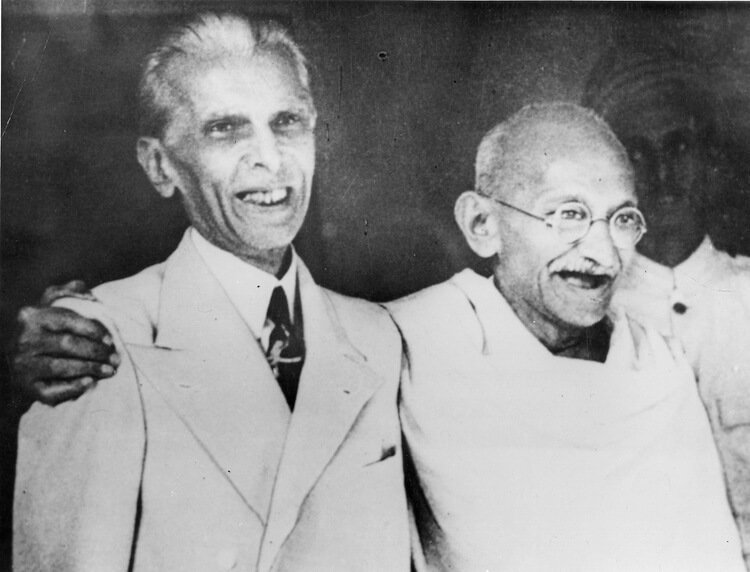
Here are some more examples:
1. The Civil Disobedience Movement (1930-34)
In Indian history textbooks, the Civil Disobedience Movement is regarded as the coming together of people in order to boycott the laws, demands, and commands of the British government.
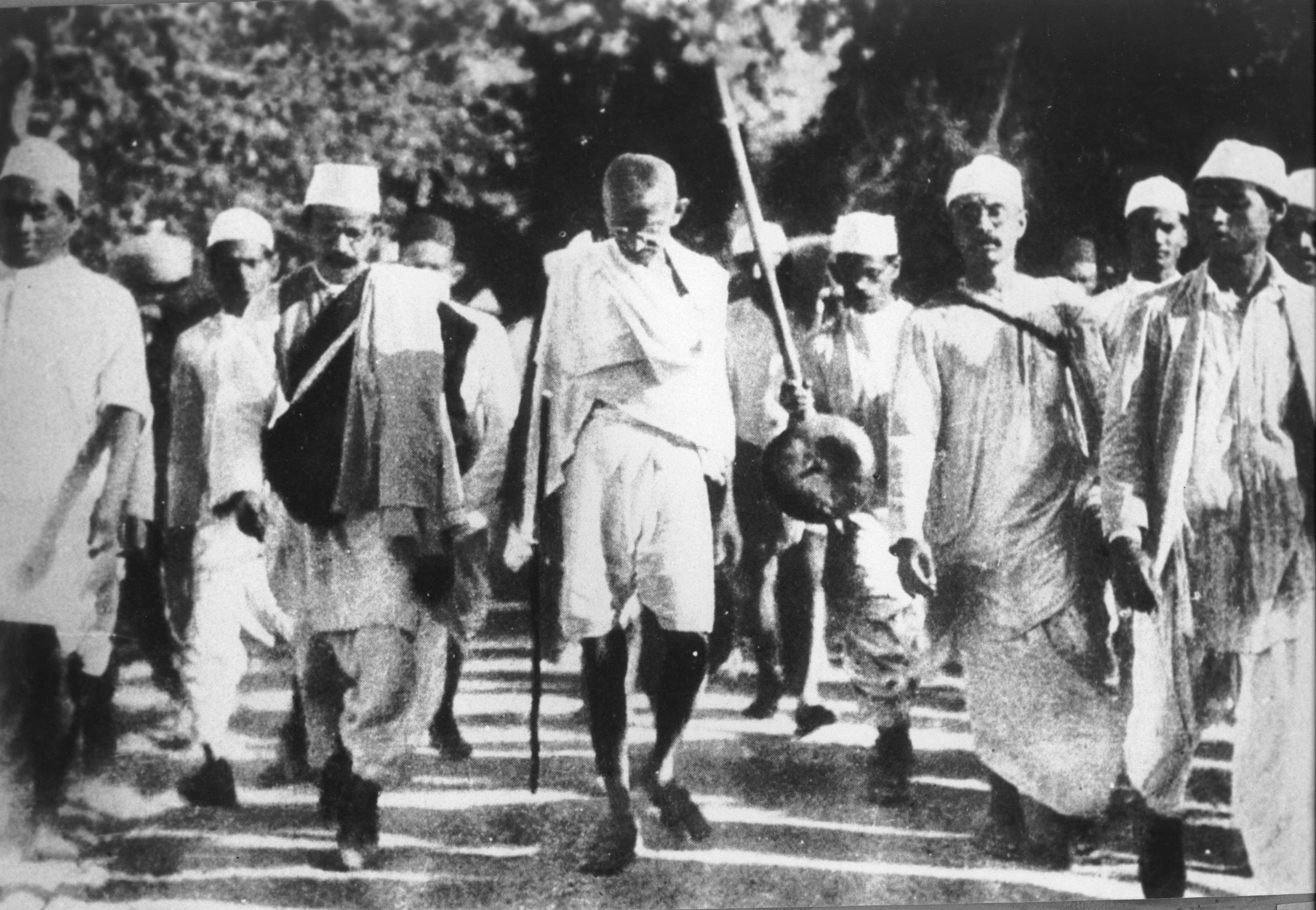
In Pakistani textbooks, there is no mention of the civil disobedience movement.
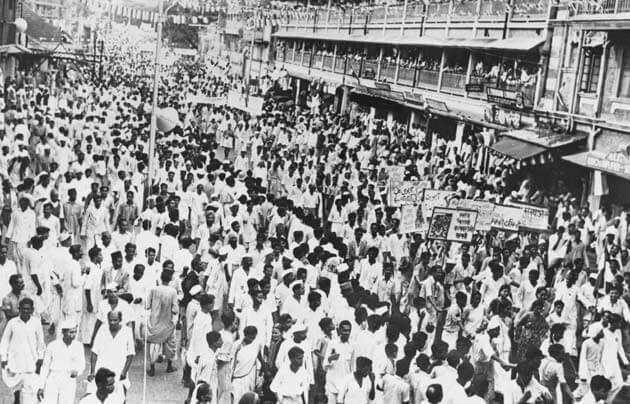
2. The partition of the British Indian Empire (1947)
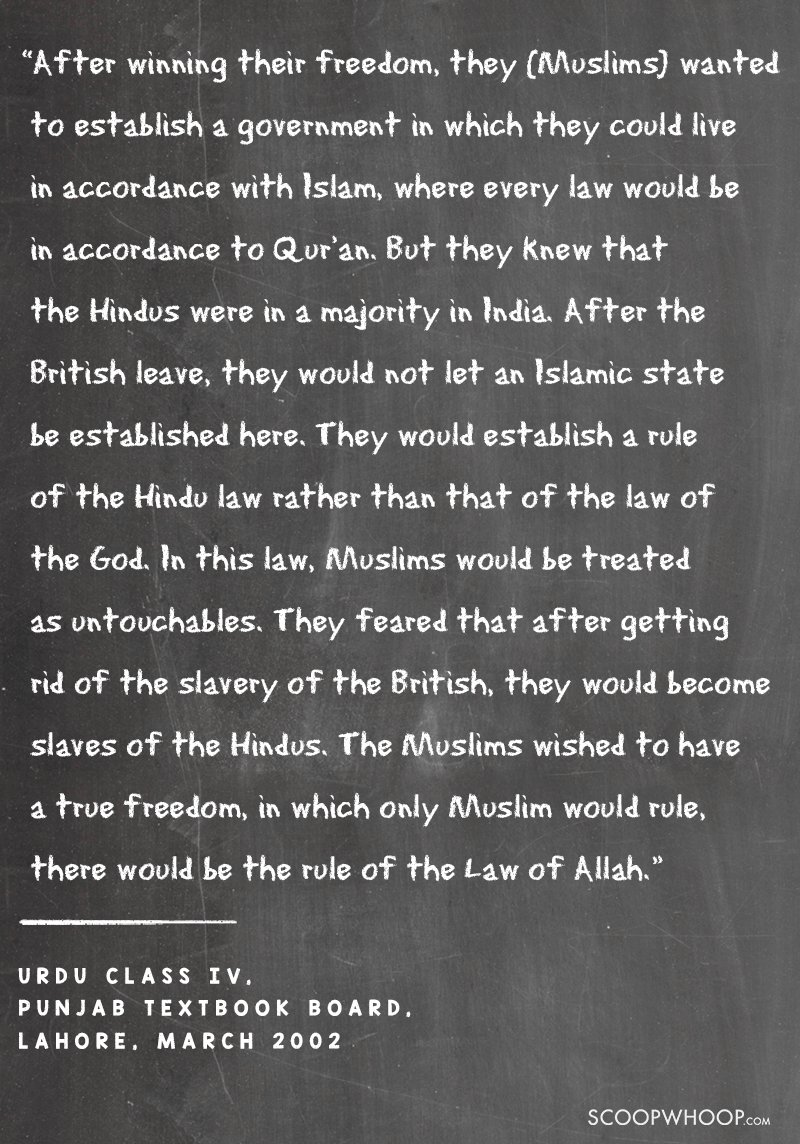
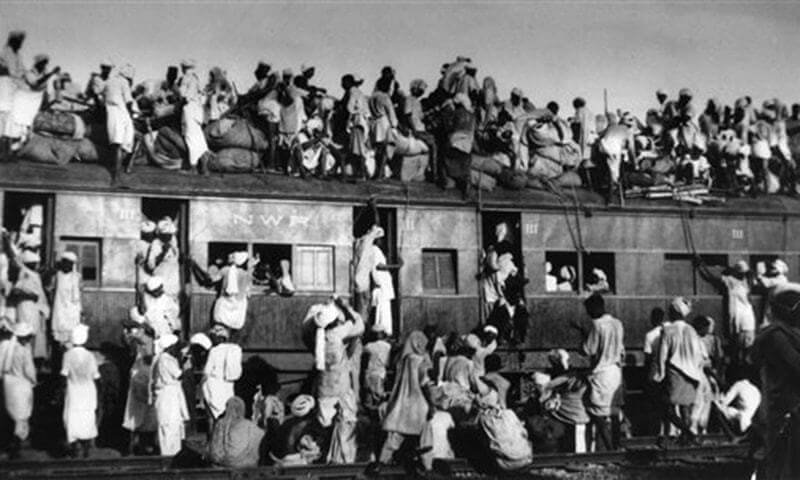
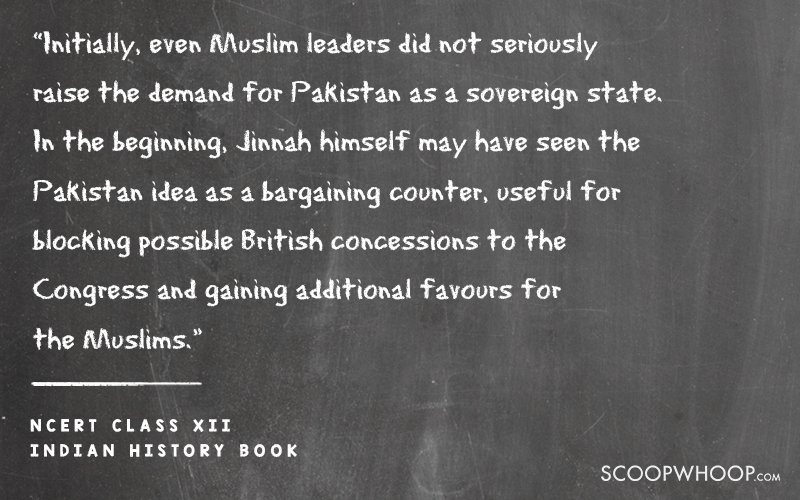
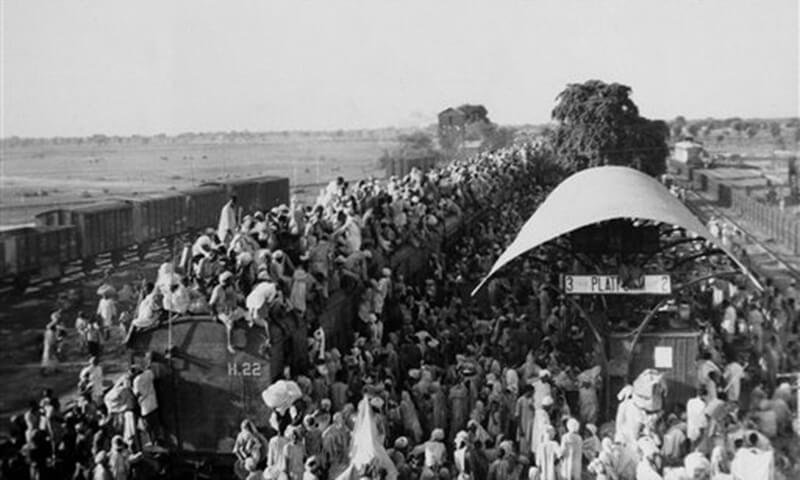
3. The 1947 riots
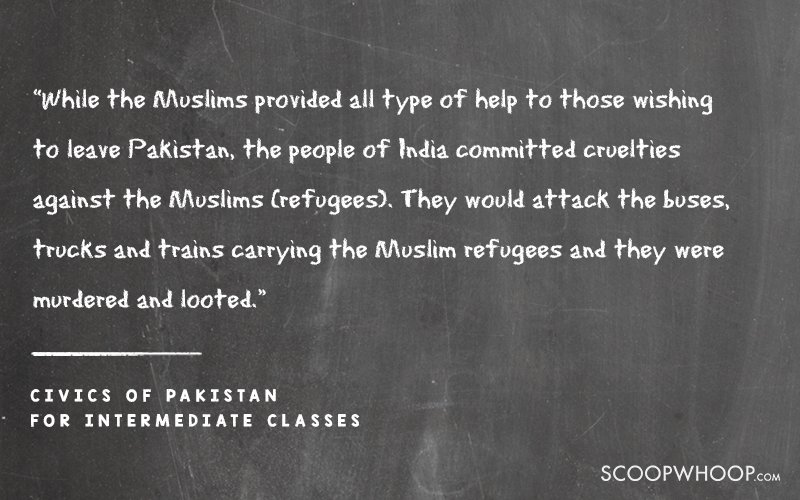
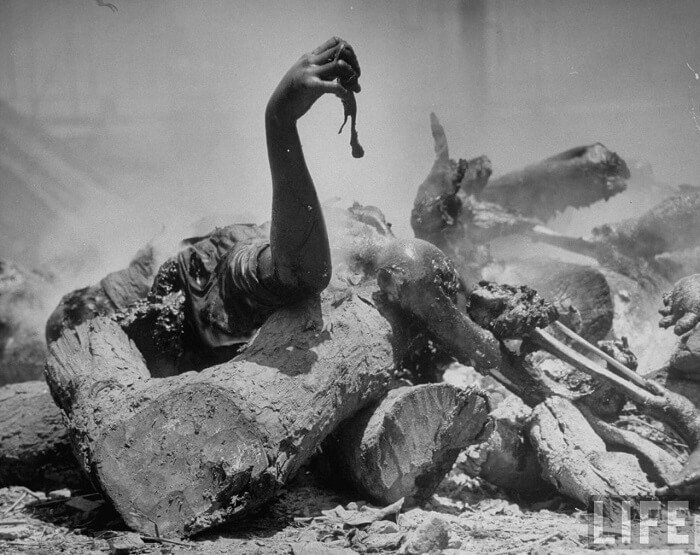
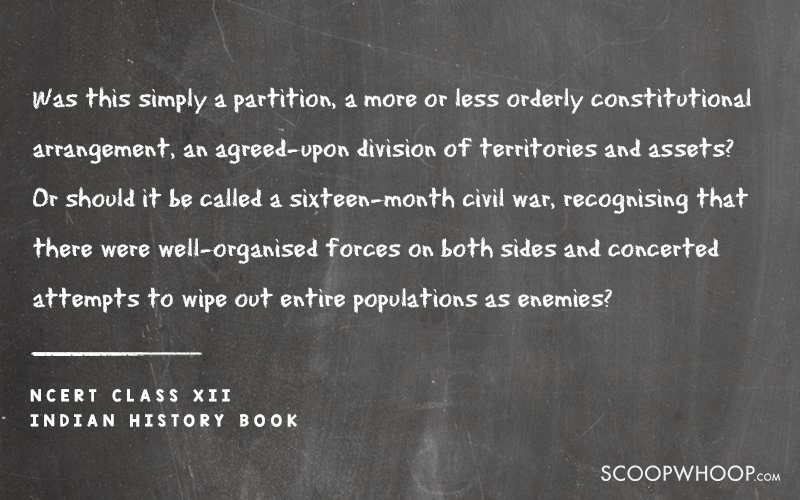
3. The Indo-Pakistani War of 1965
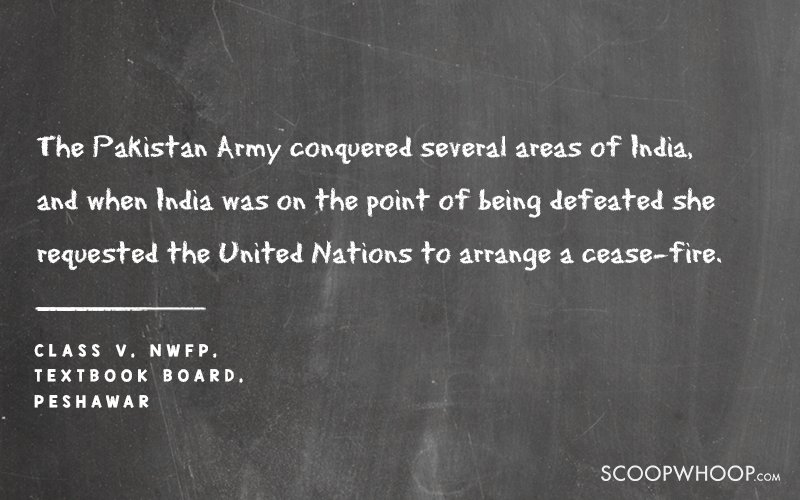
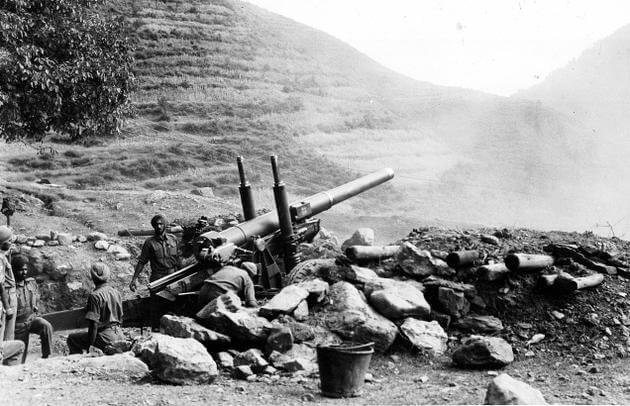
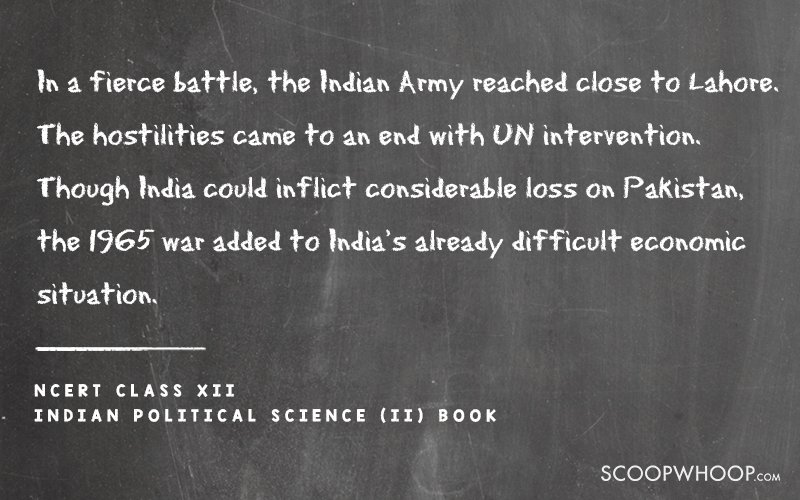
4. The Indo-Pakistani War of 1971
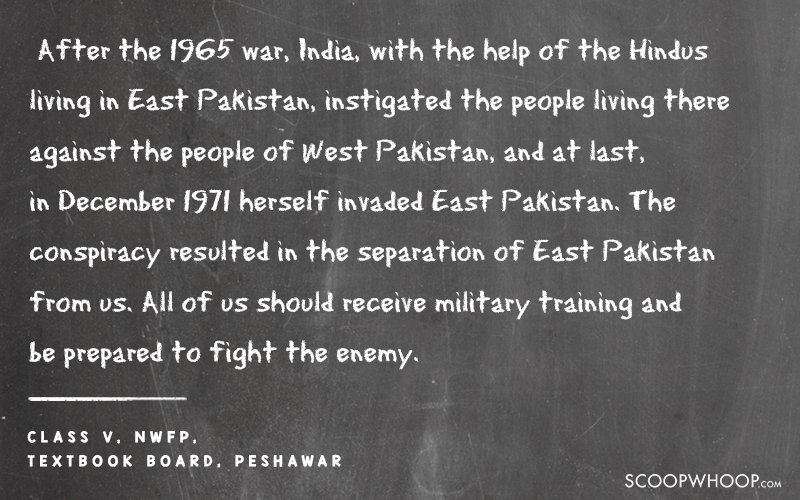
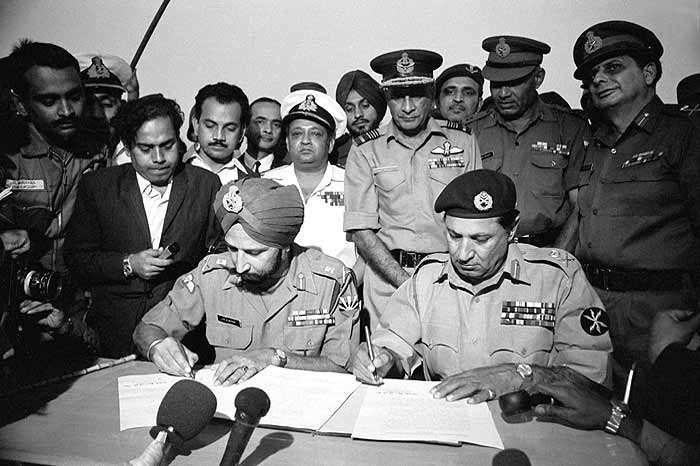
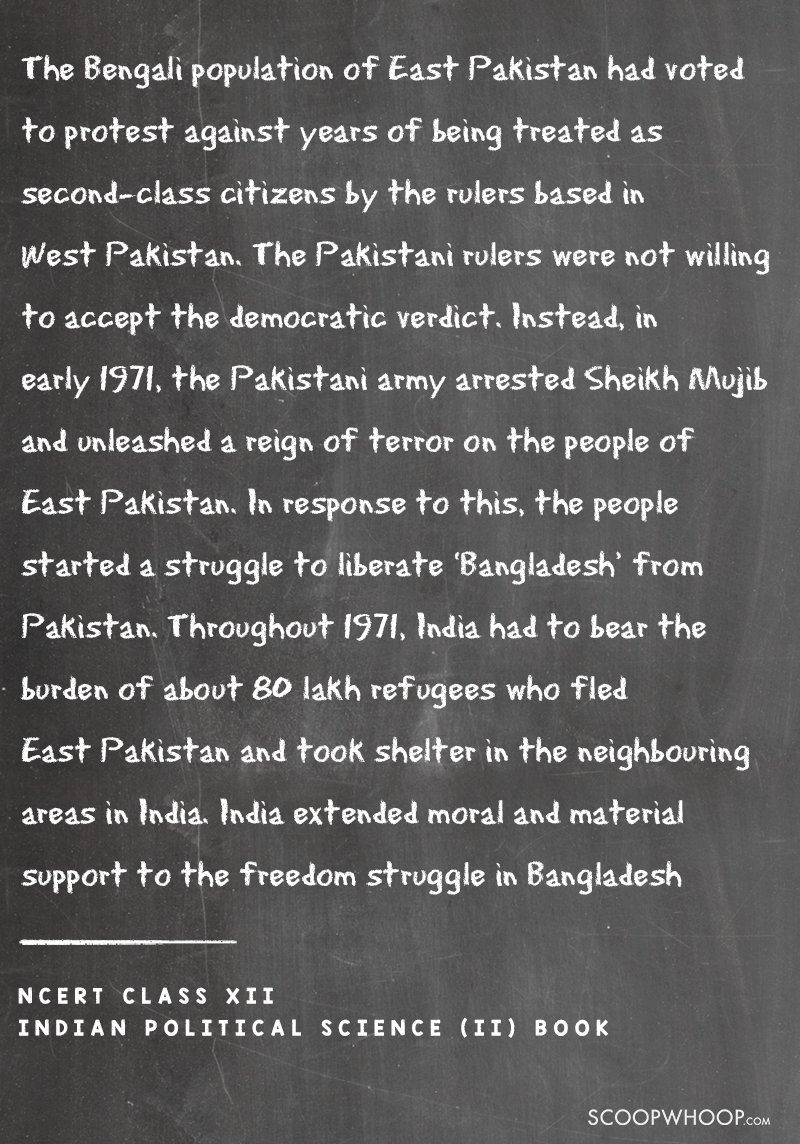
5. The Kashmir conflict (1947-present)
As reported by The Wall Street Journal,
“The Indian textbooks say armed intruders from Pakistan attacked Kashmir in 1947. Hari Singh, then ruler of the state, signed an agreement to join India, after which the Indian army went to defend Kashmir.
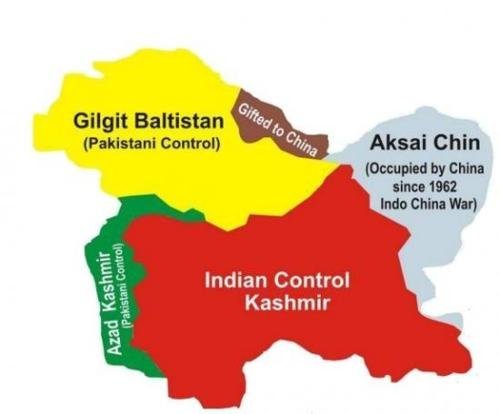
But the Pakistani textbooks say Mr. Singh started a violent campaign against Kashmiri Muslims. When they revolted, with Pakistan’s support, he was forced to ask for India’s help. The Indian government agreed on the condition that Kashmir would sign an agreement to join India, the textbooks say.”
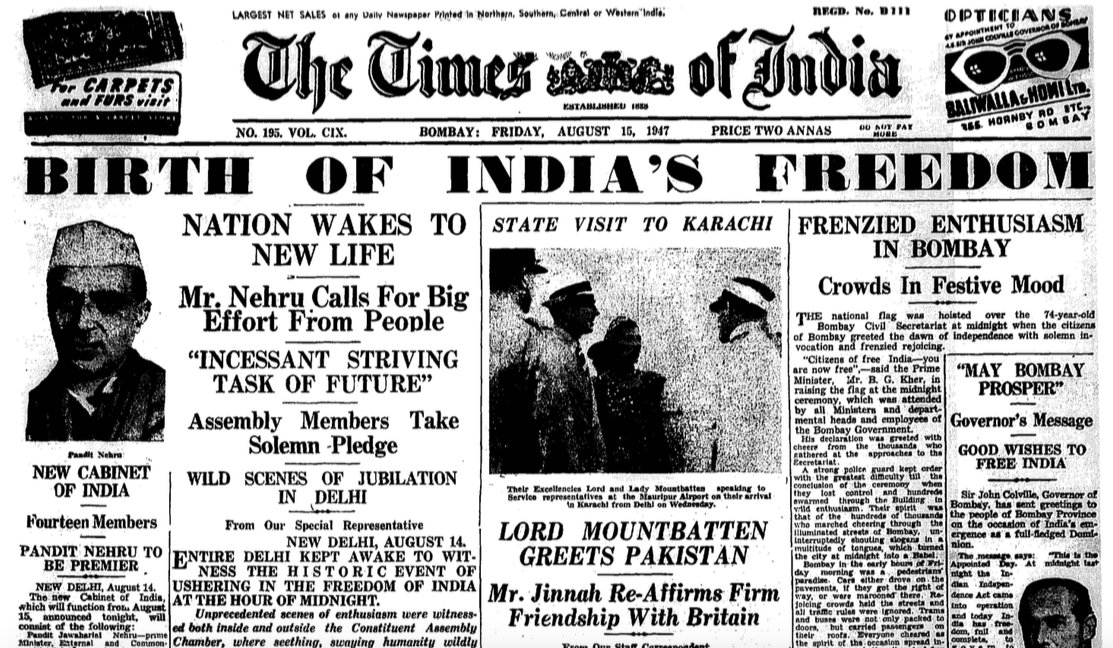
However, this is to be noted that the history curriculum in both countries doesn’t cover all major political and pathbreaking events that happened after 1947.
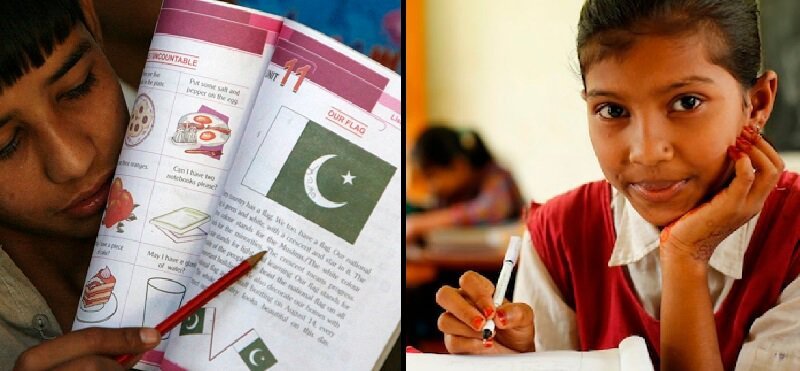
There’s no denying the fact that textbooks all over the world are one-sided, especially the ones related to a country’s history. Textbooks trying to glorify that very nation, praising its own deeds.
The question remains: Is there really any need to doctor the historical facts and teach such hatred to our children in the name of education?
Design credits: Lakshya Vij
















